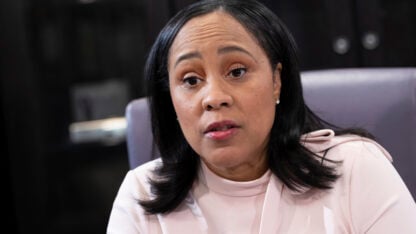Ga. Alligator Hunting Quota Sees First Increase in Years
 The Department of Natural Resources will issue 1,000 alligator hunting licenses in 2015.
The Department of Natural Resources will issue 1,000 alligator hunting licenses in 2015.
Alligator hunters, listen up.
The state has raised the quota for alligator hunting to 1,000 licenses. It’s the first increase in five years.
Statewide, less than a third of people with licenses actually kill an alligator, according to the Georgia Department of Natural Resources. The success rate for Georgia alligator hunters was 28 percent in 2014.
Alligators must be a minimum of 4-feet-long to hunt. The smaller gators are better for eating, but most would-be hunters have a monster in mind, Tina Brunjes of the Department of Natural Resources said.
“A lot of folks are looking for an 8-foot animal or better. And even though we have a lot of those animals, they don’t get to be that big by being stupid,” she said.
Careful population monitoring since the late 1960s has led to a flourishing alligator population in Georgia. They were once on the brink of extinction.
But now, in addition to the 1,000 hunting tags issued, licensed nuisance trappers remove around 450 animals a year. It’s not all about population control though.
“Hunted alligators are more respectful of humans than unhunted alligators. And we want them to be respectful,” Brunjes said.
Getting a license isn’t easy. Last year close to 12,000 people applied for 850 permits. Every year you apply, your odds get better. It takes an average of four years of racking up preference points to hook a Georgia gator license.
Despite those odds, the popularity of the hunt is on the rise, thanks in part to the reality TV show “Swamp People.”
David Lesniak has been guiding alligator hunts since 2003, when Georgia opened the season. His reaction to the increase is mixed.
“You know, obviously there’ll be more people out there,” Lesniak said.
More tags could mean more competition. He’s not worried though.
In more than 70 hunts over the years, his crew has come away empty handed only three times. Their method starts with a fishing pole.
“The way we’ll do it is we’ll hook ‘em, and then we’ll get on top of ‘em and wait for them to come up for air, and then I’ve got crossbows with 600-pound test line,” Lesniak said.
He keeps a bangstick ready for when they get the gator on the boat. Lesniak says he’s booked solid for the first two weeks of the season, which starts in mid-August.
9(MDAxODM0MDY4MDEyMTY4NDA3MzI3YjkzMw004))








